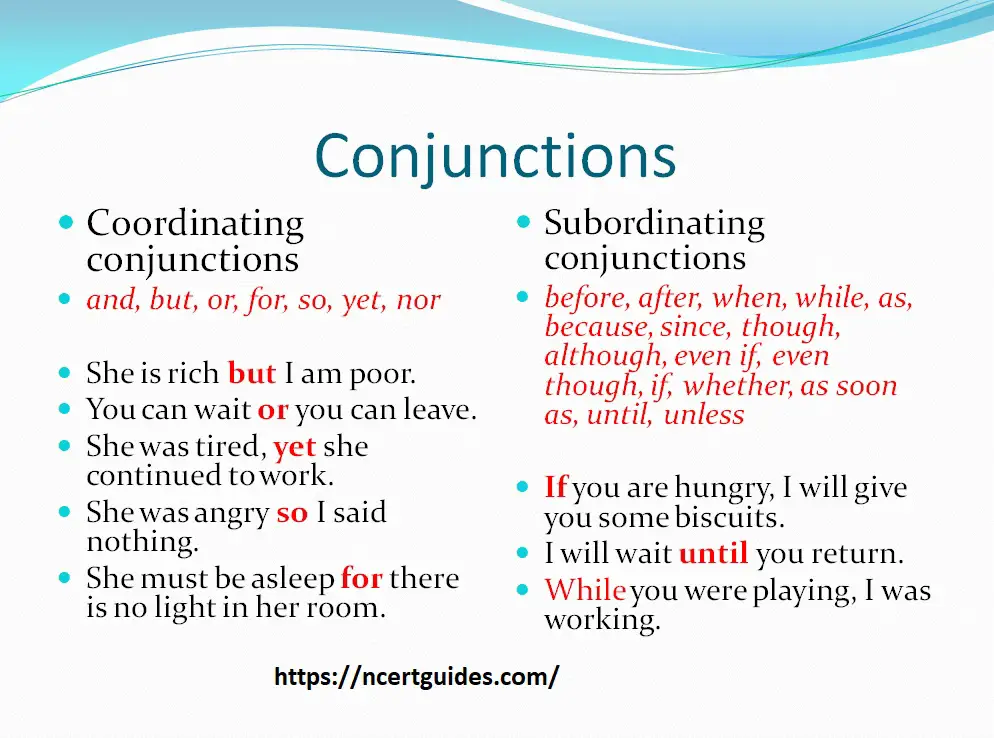What Are Conjunctions? | B1-B2 Grammar
Conjunctions are connecting words. Examples are: and, but, or, though, although, if, because, while. Conjunctions connect other words, phrases or clauses together.

- The boys sang and the girls danced.
- Rani or Radha will come.
- I saw him but he didn’t talk to me.
- Though she saw me, she didn’t greet me.
- If she is angry, send her some flowers.
- When we reached home, it was raining.
- I was tired because I had been working for hours.
There are mainly two types of conjunctions: coordinating conjunctions and subordinating conjunctions.
Coordinating conjunctions connect two clauses of equal rank.
Subordinating conjunctions connect an independent clause to a dependent clause.
Worksheet 1
Underline the conjunctions in the following sentences.
- Although she was angry, she said nothing.
- Unless you quit smoking, you will develop many health problems.
- He went abroad after he had finished his studies.
- I don’t know whether I will be able to help.
- She was tired so she took some rest.
- I waited until he arrived.
- She asked if I wanted a drink.
Answers
- Although she was angry, she said nothing.
- Unless you quit smoking, you will develop many health problems.
- He went abroad after he had finished his studies.
- I don’t know whether I will be able to help.
- She was tired so she took some rest.
- I waited until he arrived.
- She asked if I wanted a drink.
Worksheet 2
Combine the following sentences using an appropriate conjunction.
- He is uneducated. He is wise.
- He does not have a degree. He cannot find a good job.
- Learn English. You will get a better job.
- He was tired. He had been running for hours.
- I was free. I decided to watch a movie.
- I was young. I would watch a lot of cartoon movies.
- You should invite her. She will not come.
- I waited for hours. I went home.
- They started early. This did not want to miss the show.
- The teacher punished the boy. He hadn’t done his homework.
- Maya revises her lessons regularly. She gets good marks.
- It is already too late. We can’t go out now.
Answers
- Though he is uneducated, he is wise. / He is uneducated but he is wise.
- As he does not have a degree, he cannot find a good job. / He does not have a degree so he cannot find a good job.
- If you learn English, you will get a better job.
- He was tired because he had been running for hours.
- I was free so I decided to watch a movie.
- When I was young, I would watch a lot of cartoon movies.
- If you do not invite her, she will not come. / She will not come unless you invite her.
- I waited for hours and then I went home. / I waited for hours before I went home.
- They started early because they did not want to miss the show.
- The teacher punished the boy because he hadn’t done his homework.
- Maya revises her lessons regularly, so she gets good marks.
- It is already too late, so we cannot go out now.